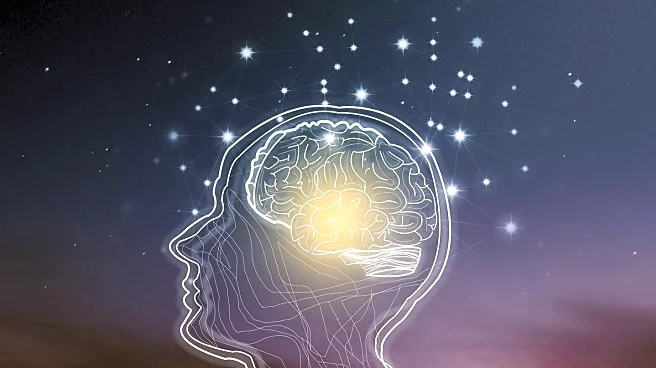What's Happening?
Recent research published in PLOS Biology has identified five distinct sleep profiles, each linked to different health outcomes and cognitive functions. The study analyzed data from over 770 young adults, revealing that sleep is more complex than just duration. The profiles include poor sleepers, resilient sleepers, sleep aid users, short sleepers, and disturbed sleepers, each with unique effects on mental health and brain function. The findings challenge the notion that standard sleep advice, such as 'get eight hours,' is sufficient, highlighting the need for personalized sleep interventions.
Why It's Important?
Understanding these sleep profiles is crucial for developing tailored interventions that address specific sleep-related health issues. Poor sleep is linked to mental health challenges like anxiety and depression, while resilient sleepers show resistance to sleep-related problems despite mental health issues. This research underscores the importance of considering individual sleep patterns in clinical assessments and treatments, potentially leading to more effective strategies for improving mental health and cognitive function.
What's Next?
The study suggests that healthcare providers should incorporate these sleep profiles into their assessments to better understand and treat sleep-related health issues. Future research may explore how these profiles apply to different age groups and populations, potentially leading to broader applications in sleep health management.
Beyond the Headlines
The study's cross-sectional nature means it shows associations rather than causation, indicating that poor sleep could contribute to mental health issues, but mental health problems might also drive sleep disruption. This highlights the complex interplay between sleep and mental health, suggesting that interventions should address both aspects.










